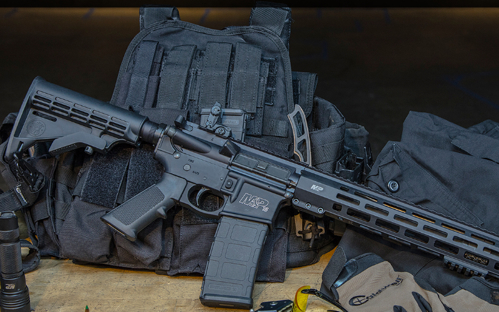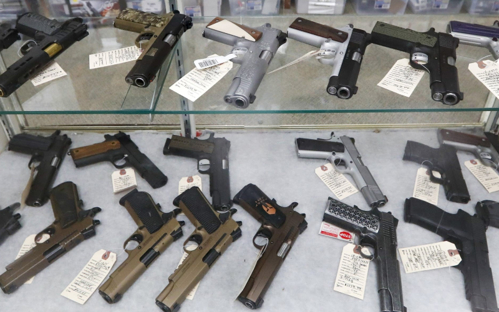The nine-member court requires four votes from its justices to schedule a legal review on the court calendar. That pivotal vote often leads to landmark decisions, including gun-rights cases such as Heller and Bruen, but the high court has now turned away two of them to the surprise of many.
SCOTUS Blog, the popular legal website, reports the Supreme Court had agreed to hear 15 consecutive Second Amendment-related cases when it turned away the Maryland case, Snope v Brown, and the Rhode Island case, Ocean State Tactical v Rhode Island.
 Bill Sack is director of legal operations for Second Amendment Foundation, a party to the Snope case. He called the rejection an “egregious decision” by the Supreme Court.
Bill Sack is director of legal operations for Second Amendment Foundation, a party to the Snope case. He called the rejection an “egregious decision” by the Supreme Court.
"Unfortunately, what it does is it allows these pernicious firearms bans, that are in certain jurisdictions around the country that affect probably tens of millions of people, to remain in place,” he tells AFN. “So it's certainly a problem and we are very disappointed in the outcome today."
Three conservative justices on the nine-member Court – Clarence Thomas, Samuel Alito, and Neil Gorsuch – penned opinions stating why they believed the nine justices should have listened to challenges in Maryland and Rhode Island. Alito and Gorsuch said they would have taken a case challenging Maryland's ban, and Justice Thomas wrote separately to say the law likely runs afoul of the Second Amendment.
 According to the Scotus Blog story, Thomas’s dissent focused on the rifle banned in Maryland, the AR-15. Those rifles are not “dangerous and unusual weapons,” he reasoned, but are in fact the most popular civilian-owned rifle in the United States.
According to the Scotus Blog story, Thomas’s dissent focused on the rifle banned in Maryland, the AR-15. Those rifles are not “dangerous and unusual weapons,” he reasoned, but are in fact the most popular civilian-owned rifle in the United States.
In a rather fence-sitting legal opinion, Justice Brett Kavanaugh agreed with the majority decision to pass turn away the cases but indicated he is skeptical such bans are constitutional. He wrote he expects the court will address the issue "in the next term or two."
The Maryland law was passed after the tragic 2012 shooting at Sandy Hook Elementary School, located in Connecticut, where the gunman shot and killed 20 children and six adults.
 Rhode Island’s law, passed in 2022, bans private ownership of so-called “large-capacity” magazines with a maximum allowance of 10-round magazines. Those magazines are technically standard-capacity magazines, such as a 30-round magazine for the AR-15 and a 15-round magazine for semiauto pistols made by Smith and Wesson, Glock, and Beretta.
Rhode Island’s law, passed in 2022, bans private ownership of so-called “large-capacity” magazines with a maximum allowance of 10-round magazines. Those magazines are technically standard-capacity magazines, such as a 30-round magazine for the AR-15 and a 15-round magazine for semiauto pistols made by Smith and Wesson, Glock, and Beretta.

Alan Gottlieb, of Citizens Committee for the Right to Keep and Bear Arms, tells AFN his organization is also disappointed the cases were turned away but is also hopeful after Kavanaugh’s prediction of a future ruling from the court.
"That's very important,” he says. “So, while a right delayed is a right denied, we hope soon that the Court will take this issue up and that we'll eventually win."
Mark Oliva, of National Shooting Sports Foundation, the firearm industry trade association, tells AFN gun rights supporters need to pay attention to these Second Amendment issues regardless of where they live.
"States where people live in, like Mississippi or Montana, where it seems very safe now, elections matter,” he warns. “And if elections don't go the way of people who support and protect your Second Amendment rights, these rights could be very quickly chipped away.”







